Grammar practice Normal Writing Worksheets for Ages 5-7
7 filtered results
-
From - To
Discover our engaging Grammar Practice Normal Writing Worksheets designed specifically for children ages 5-7! These worksheets offer a fun and interactive way to enhance your child's writing skills while mastering essential grammar concepts. Each activity focuses on critical learning areas such as sentence structure, punctuation, and parts of speech, making it perfect for young learners. With colorful illustrations and easy-to-follow instructions, students will enjoy building their confidence in writing and grammar. Ideal for home or classroom use, our printable resources provide tailored support to ensure a smooth learning experience. Help your child become a budding writer today with our enjoyable worksheets!
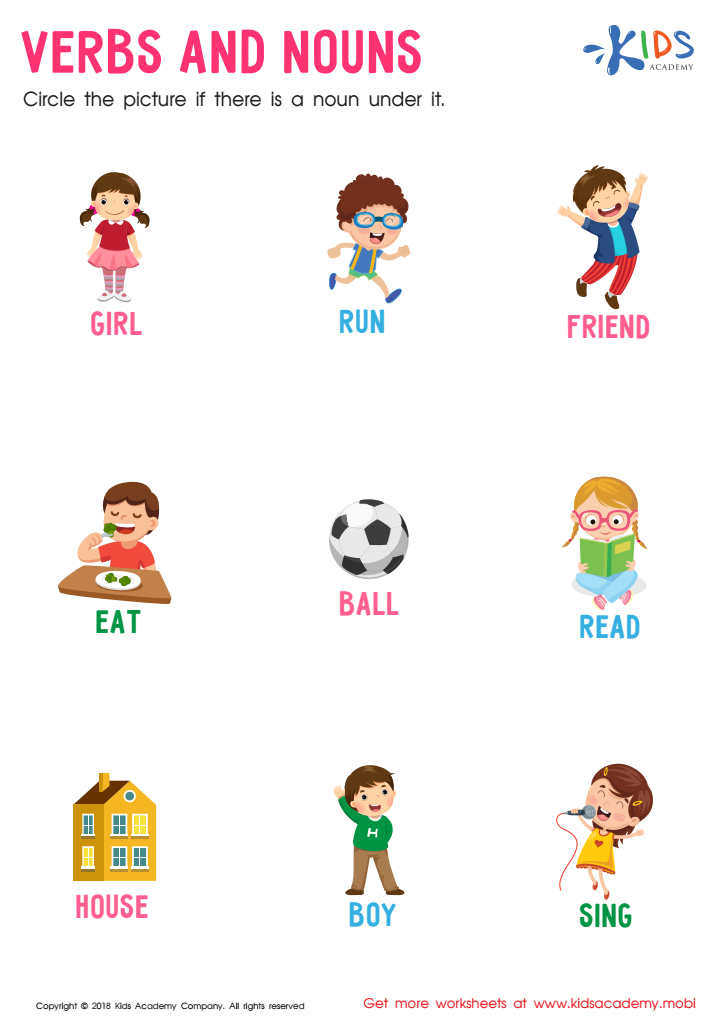

Verbs and Nouns Worksheet
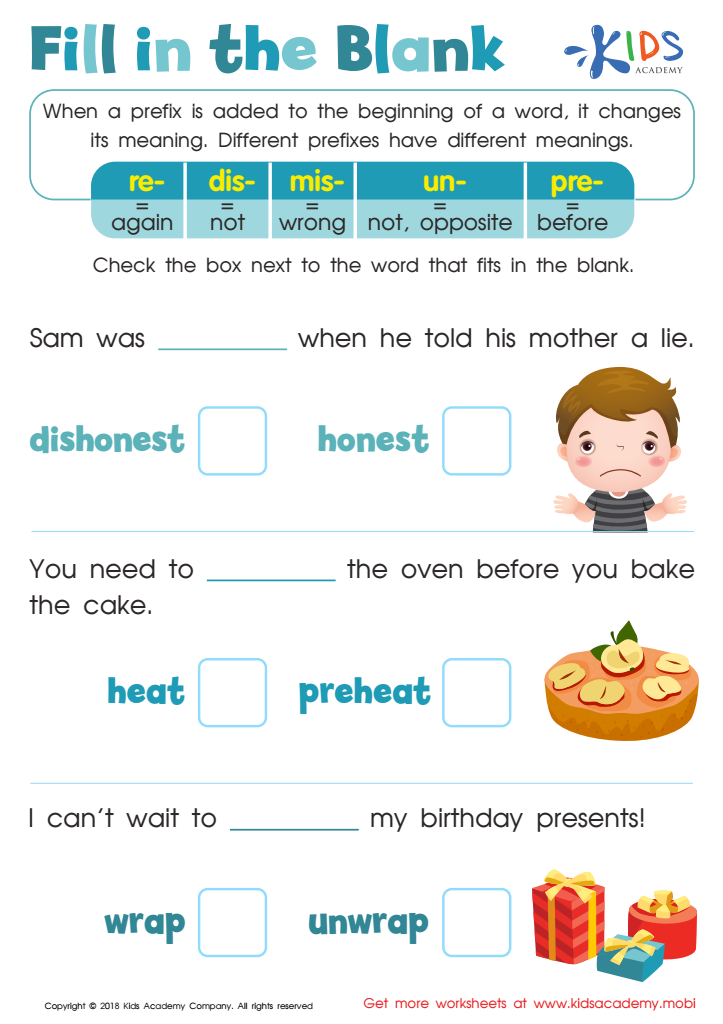

Reading: Fill in the Blank Worksheet
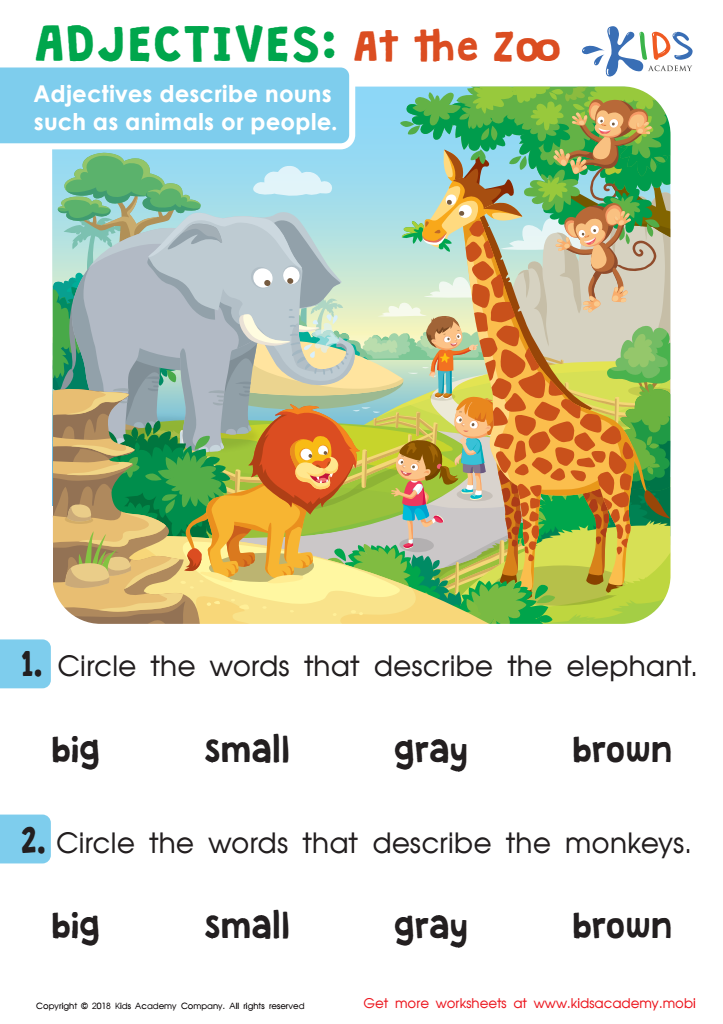

Adjectives: At The Zoo Worksheet
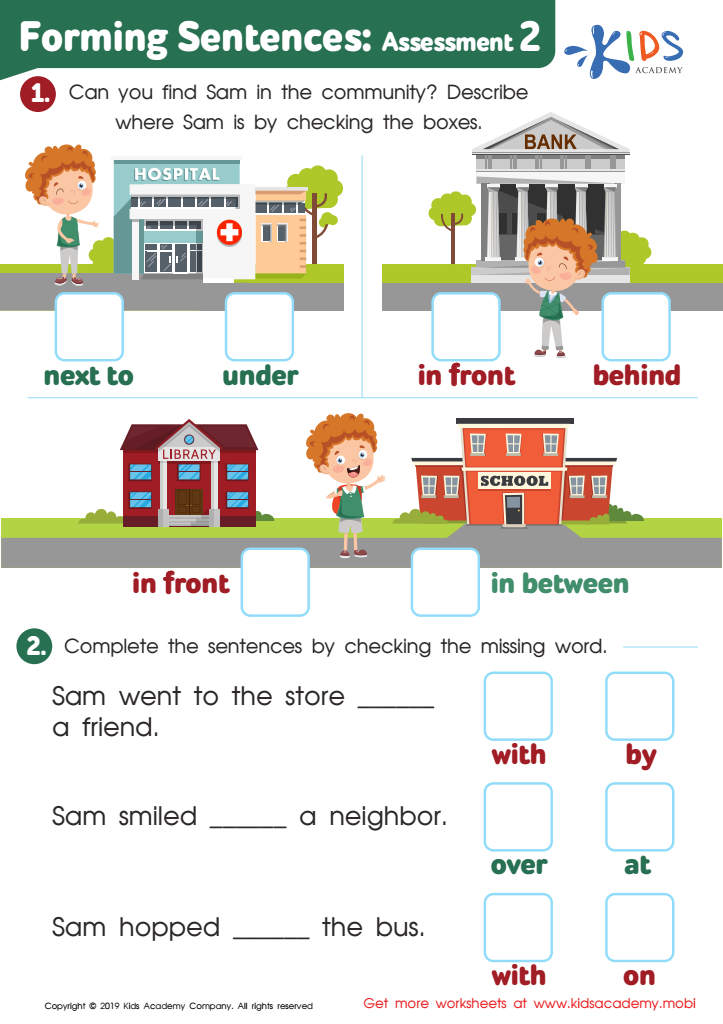

Forming Sentences: Assessment 2 Worksheet
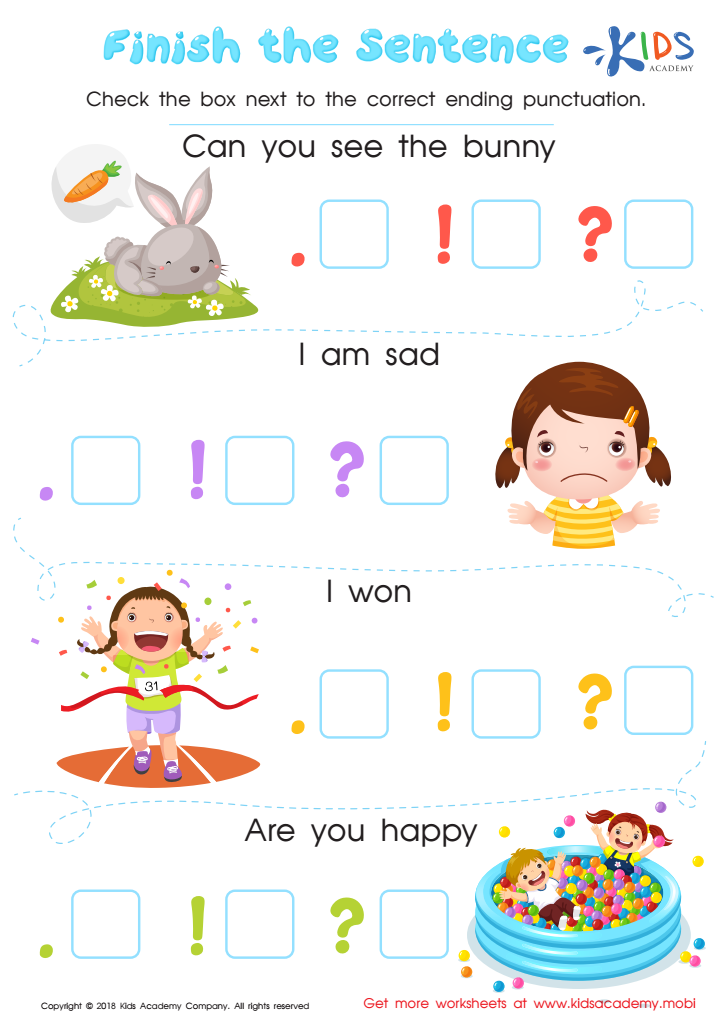

Finish the Sentence Worksheet
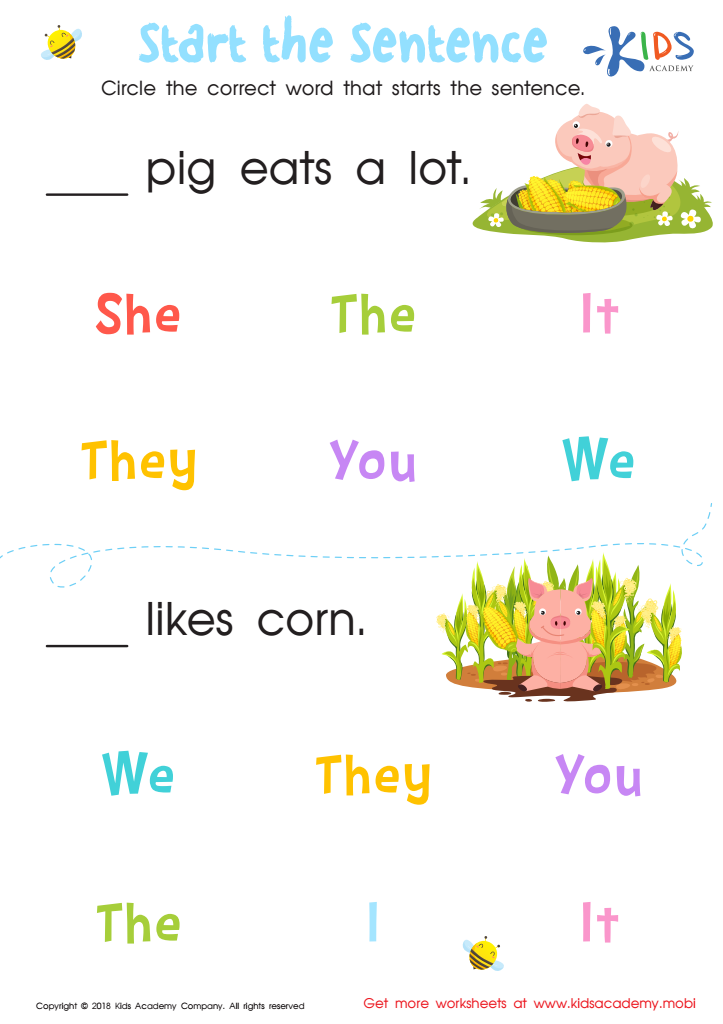

Start the Sentence Worksheet
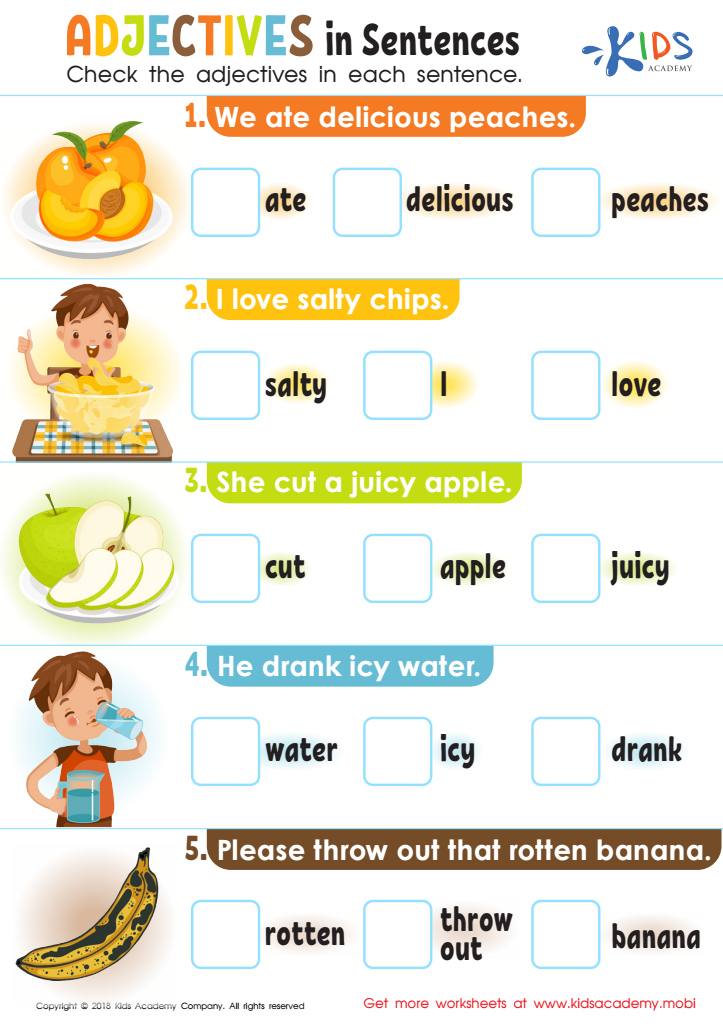

Adjectives in Sentences Worksheet
Grammar practice is essential for children aged 5-7 as it lays the foundation for effective communication and literacy skills. At this crucial stage of development, children are beginning to form sentences and express their thoughts more clearly. By focusing on normal writing techniques and grammar, parents and teachers can help children understand the structure of language, which enhances their ability to convey ideas coherently.
Moreover, grammar practice develops critical thinking skills, as children learn to organize their thoughts and choose appropriate words. This not only aids in their writing but also promotes better reading comprehension, allowing them to engage more fully with texts. Furthermore, establishing good grammar habits early can boost children’s confidence in their writing abilities, encouraging them to express themselves more freely.
Additionally, in today's digital age where effective written communication is key, a solid understanding of grammar will serve children well throughout their educational journey and into their careers. By guiding children in grammar practice, parents and teachers are not just teaching them the rules of language, but also giving them tools to succeed and communicate effectively as they grow. Ultimately, fostering these skills at a young age benefits both the child and society as a whole.
 Assign to My Students
Assign to My Students










.jpg)










